- Home
- Margaret Pemberton
Vengeance in the Sun
Vengeance in the Sun Read online
Bello:
hidden talent rediscovered
Bello is a digital only imprint of Pan Macmillan, established to breathe life into previously published classic books.
At Bello we believe in the timeless power of the imagination, of good story, narrative and entertainment and we want to use digital technology to ensure that many more readers can enjoy these books into the future.
We publish in ebook and Print on Demand formats to bring these wonderful books to new audiences.
www.bellobooks.co.uk
Contents
Margaret Pemberton
Dedication
Chapter One
Chapter Two
Chapter Three
Chapter Four
Chapter Five
Chapter Six
Chapter Seven
Chapter Eight
Chapter Nine
Chapter Ten
Chapter Eleven
Chapter Twelve
Chapter Thirteen
Chapter Fourteen
Chapter Fifteen
Chapter Sixteen
Chapter Seventeen
Chapter Eighteen
Chapter Nineteen
Chapter Twenty
Chapter Twenty-One
Chapter Twenty-Two
Margaret Pemberton
Vengeance in the Sun
Margaret Pemberton is the bestselling author of over thirty novels in many different genres, some of which are contemporary in setting and some historical.
She has served as Chairman of the Romantic Novelists’ Association and has three times served as a committee member of the Crime Writers’ Association. Born in Bradford, she is married to a Londoner, has five children and two dogs and lives in Whitstable, Kent. Apart from writing, her passions are tango, travel, English history and the English countryside.
Dedication
For my children, Amanda, Rebecca,
Polly, Michael and Natasha
Chapter One
Below me Majorca’s tiny airstrip shelved into view, shimmering beneath a heat haze. I took a deep breath and fastened my seat belt. It was no use going back. There was nothing to go back to. I clenched my fists at the memory of Max. Damn him. Damn him. Damn him.
The wheels touched ground and the heavily built man sat next to me, mistaking my anguish for fear, said: “ It’s all right. We’re down now. Nothing to worry about.”
I smiled mechanically and reached for my hand luggage.
“Here, let me.” Good-naturedly he lifted my overnight bag from the rack. “ No fun travelling alone, is it?”
“No,” I said with a tight smile, squeezing after him into the aisle. And if it hadn’t been for Max’s faithlessness I wouldn’t have been travelling alone. I followed an expensive smelling Frenchwoman down the steps and onto the tarmac. I should never have become engaged to him in the first place. I should have known it wouldn’t work. Max liked his women as fast as his cars and I was well rid of him.
“Have a nice time,” my cheerful companion from the plane said, heaving his suitcase from the conveyor belt, then turning and disappearing amongst the crowd.
“Yes,” I said grimly, alarming the woman stood next to me. “ I will.”
I walked out into the dazzling sunlight, pausing hesitantly as uniformed couriers herded their holidaymakers into mini buses and the elegant Frenchwoman stepped into a waiting limousine. Mrs Van de Naude had said I would be met at the airport. The throng around me thinned and trickled away and still there was no-one looking for an English girl travelling alone. I sat down on my case and prepared to wait.
It was midday and the sun was bright, the air sharp with the tang of orange and lemon trees. Beyond the smudged green of the hillsides the sky was a deep, unbelievable blue, high curling clouds trailing wispily towards the bone-white outline of mountains. On the verge of the airfield the stark silhouette of a windmill creaked motionless in the heat. I closed my eyes. Perhaps my rash act in flying to Majorca wasn’t going to be so disastrous after all. Here there would be no constant reminders of Max. No repetition of last week when I had walked into Lacey’s, our favourite restaurant, and caught Max holding hands with a half dressed French girl. They had been so engrossed in each other that they hadn’t even been aware of my entrance. And that had been only weeks before we were due to be married! I was well rid of him and it was time I stopped thinking about him.
The trouble was, I had known Max too long. We were cousins, and I had spent all my school holidays at Crailsham Place with Aunt Katherine, Uncle Alistair … and Max.
He was the older by six years, and the first holiday I had spent there, when he was eleven and I was five, he had nick-named me Brat, told me not to be a nuisance and not to get in his way. Mournfully I had trailed round after him, until he had said condescendingly that I could run after his cricket balls, fetch his kite back, and even watch him ride, on condition I didn’t tell any tales. Gradually a bond grew between us and we became inseparable. For the next six years, all through the summer, Max took me everywhere with him, teaching me to ride and swim and fish and even, to Aunt Katherine’s horror, shoot. After he had seen his first motor race and begun single-handedly building his own car, I stood for hours with oil and grease on my hands, handing him his tools, always having a rag at the ready. Wherever Max went. I went. Blissfully content.
Then, when he was seventeen, he no longer returned to Crailsham Place in the summer, and the holidays were long and tedious and nothing seemed as much fun as it used to.
Max had begun to race professionally … and have girl friends. My mother said he was wild and that Aunt Katherine was too indulgent with him, but I thought Max’s flamboyant success as a driver and the flare he had for hitting the headlines the height of glamour and secretly kept any press cuttings I could find to show to my envious friends at school.
When I did meet him again I felt strangely shy. My precious hoard of cuttings hadn’t prepared me for the drastic change in him. He was tall, over six foot, and powerfully built with strong shoulders and the easy grace of an athlete. His colouring betrayed his Italian grandmother who, my mother said, was no better than she should have been. He was even darker than I remembered, his hair a black, curling pelt, his complexion swarthy, only his brown eyes, gleaming and full of laughter, were familiar.
“Hello Brat,” he had said, as though it were the school holidays and we were children again. And, old habits dying hard, I slipped back into my role of worshipful admirer. Around when he wanted me, uncomplaining when he didn’t. Then, suddenly, everything changed.
Max was spending a week with some friends in Cornwall surfing. Uncle Alistair said he was going down to join them for a weekend and asked if I would go with him. It was tea-time when we arrived, and there was the smell of rain in the air. I had the uncomfortable feeling that Max had rather we hadn’t gone, his attention being taken up with Claudette Claustre, a beautiful film actress he had recently been spending his time with. Uncle Alistair seemed not to notice his son’s coolness and was his usual bland and genial self, and there was no reason why I should have minded. After all, I was only cousin Lucy. But when Max excused himself from the proposed boat trip after dinner and said he was taking Claudette into Polperro, there seemed no pleasure left in the expedition. There were seven of us altogether. Giles Fulbright, an old friend of Uncle Alistair’s. Gwen Fulbright, his wife. Jim Shernham, a racing driver friend of Max’s, and his girl friend, a pretty brunette called Kay, and Danny Collins whose boat we were to go out in.
Uncle Alistair had expressed doubts even before we had reached the boat-house. The sky was darkening and the waves were high. Danny had been emphatic that it was nothing but a squall, but as a spray of foam showered us
, Kay had taken Jim’s hand and said she preferred not to go. Staring out over the heaving sea Gwen Fulbright had been the next to cry off. Uncle Alistair had said:
“Come on, Lucy. Let’s go back and warm ourselves with a drink. No joy in going out in weather like this.”
But I had no desire to spend the evening sitting in the cottage brooding about Max and Claudette. So Jim Shernham, Giles Fulbright, Danny Collins and myself put to sea. Within minutes there came the ominous roll of distant thunder and I gritted my teeth as the small boat pitched and rolled, struggling for the headland. The turbulence of the waves and the smack of the foam against our faces as we reached the open sea was exhilerating at first, but soon became touched with fear as the sea gripped the boat, plunging her deeper and deeper amongst the white horses. Acknowledging defeat, Danny strained to turn the boat and battled towards the shore. We didn’t make it. Twenty yards from the jetty a giant wave lifted the boat, smashing it leewards into the icy sea. Ten minutes later, frozen and exhausted, I staggered out of the water behind Giles Fulbright and collapsed on the beach.
“Lucy!”
I don’t remember seeing him running over the sand. One moment I was sick and shivering, the next Max was down beside me, his face white in the darkness.
“Lucy! Look at me! For God’s sake! Lucy!” His arms were round me and he was kissing me in a way that had nothing cousinly about it. I clung to him, oblivious of Uncle Alistair and the dripping figures of Jim Shernham and Danny Collins. His hands gripped my hair savagely as he lifted his face from mine, saying in a voice that was almost unrecognisable:
“Don’t ever frighten me like that again, understand?”
I nodded, unable to answer as his mouth came down hard on mine and then, eternities later, he said hoarsely:
“God, what a fool I’ve been. I thought I’d lost you, Brat.” And he picked me up in his arms and carried me gently across the wet shingle to the house. After that, for a full year, Max wasn’t seen in the company of models, actresses and society girls. Only me.
Aunt Katherine said it was too good to be true and it was. A few weeks ago I had begun to hear rumours that Max was seeing Claudette Claustre again. I had ignored it as malicious gossip until the day of my birthday. We had arranged to go to Paris, but Max phoned me, full of apologies, saying they were having trouble with the car he was driving next season and he wouldn’t be able to get back from testing it till after the weekend. I had gone to Crailsham Place, had dinner with Aunt Katherine and Uncle Alistair, and waited for him to return.
The next day the papers had a photograph of Max and Claudette Claustre. It had been taken the night before at a party held for Fedor Katchorsky, a visiting Russian composer. He had written the score for a film Claudette had recently appeared in, hence her presence there. The reason for Max’s was, presumably, Claudette.
He was all sweet reason when he had returned and I had showed him the photograph.
“It’s nothing to get upset about, sweetheart,” he had said, pouring himself a drink.
“But it is, Max. You lied to me.…”
“No I didn’t,” he’d said firmly. “When I telephoned you I told you the truth. I had to go down to Oatlands to test the car. I didn’t know then I would be seeing Claudette.…”
“It was my birthday,” I’d said stubbornly, feeling myself weaken as he put his drink down and moved purposefully towards me.
“It was my love … and I hadn’t forgotten.” He lifted a delicate pendant of gold and lapis lazuli from his pocket. Two tiny cherubs floated heavenwards against the deep blue surface. “Like it. Brat?” he asked softly, fastening it around my neck, pulling me against him.
“Yes,” I said. “But Claudette.…”
“Forget Claudette,” he’d said, the dark eyes gleaming as he held me fast, silencing my protests with kisses.
Then last Sunday I had swung happily into Lacey’s to be met by the sight of Max and Claudette at a corner table. They were sat close together, hands clasped, and Claudette’s eyes were radiant. Sick and trembling I had turned, running blindly up the street, knowing the truth and knowing what I must do.
Max did not want to marry me. Had never wanted to marry me. His rash proposal had been nothing but reaction when he had found me half-drowned on the beach. He was still as unable to resist the company of the beautiful women who flocked the racing circuits as he ever was. I had an old magazine clipping of an interview he had once given, where he was quoted as saying ‘I like having lots of beautiful women around me’, when asked about his playboy image. Well, I wasn’t beautiful. Pretty, yes. Beautiful in the way of film stars like Claudette Claustre, no. Max had made a mistake and been too kind to admit it. Admitting it was going to be up to me.
It hadn’t been easy. Max had merely laughed when I had handed him my engagement ring back.
“Don’t be ridiculous, Brat,” he had said, leaving it where it lay on the table.
“I’m not being ridiculous,” I said, my throat painfully tight. “I’ve given it a lot of thought and I’m not marrying you.”
“Well I’m damn well marrying you!” he had said, his eyes flickering dangerously as he made a grab for me. Once in his arms I knew my good intentions would be gone forever. The telephone began to ring and as he glanced towards it I pushed him, knocking him off balance, darting under his outstretched arm, slamming the door behind me as I flew from the room. Suicidally I ran into the street, the sound of the telephone still ringing in my ears as I frantically flagged a taxi and scrambled into it, seeing Max hurtle out of the house and stand, panting and cursing in the dust behind me.
That evening I had answered Helena Van de Naude’s advertisement for a nanny for her daughter, the attraction being the chance to leave Max far behind me and start life afresh. Helena Van de Naude had rung me immediately, and three days later I had gone to see her at the Dorchester and now, only a week later, I was on my way to the villa D’Este and my first meeting with Danielle.
I opened my eyes, looking around me. Another plane was circling the airport and a couple of mini buses had drawn up ready to ferry more tourists into Palma and the resorts nearby. The villa D’Este lay in another part of the island, high in the mountains. Helena Van de Naude had stressed to me how remote the villa was but I hadn’t cared. All I had wanted was to get away from Max and Crailsham Place, to be spared the misery of seeing him and Claudette together and knowing I had been right, for in all that long, never-ending week. Max had neither written nor telephoned me.
I had liked Helena Van de Naude immediately. She was in her late thirties, tall and athletically built. Her skin was darkened by the Mediterranean sun and her hair was thick and wavy. She wore it swept away from her forehead, accentuating hazel eyes and glossy winged eyebrows. She was full of energy and vitality, the wide mouth smiling easily and often.
“Have you been a nanny before?” she asked pleasantly.
“No.…”
“Is it something you have always wanted to do?”
“No,” I answered truthfully, feeling the job slipping away from me.
“You want the opportunity to travel, perhaps?”
I thought of the past jet-setting year with Max. Monaco, Japan, Germany, South Africa.…
“No,” I said.
She stared at me in amusement, then said directly: “You look like an educated girl who would have no difficulties in getting a good job. What are the attractions in burrowing yourself away with a six year old girl? You will have very little company, you know.”
“I don’t want company.”
The perceptive eyes flickered to the naked white band on the third finger of my left hand.
“Divorced?”
I shook my head. “No. It was an engagement.”
She stretched her long legs. “And I was to be your refuge?”
“Yes,” I said, standing up and picking up my shoulder-bag. “ I’m sorry I’ve wasted your time, Mrs Van de Naude. Goodbye.”
She didn’t move. “Y
ou haven’t wasted my time, Miss Matthews. Quite the reverse. There is every chance in the near future that my family will be moving to Africa. A new nanny may not find the idea of Africa as congenial as that of Majorca, and so whoever I engage may only be with us for a short time. I think you would suit us very well.”
“You mean I can have the job?”
“Can you drive?”
I nodded. She motioned me to sit down again.
“Then if you want it, the job is yours.” She curled her legs beneath her on the sofa. “ We are very isolated. The villa is on a headland a good three miles from the nearest road, and that’s only a mountain road that leaves a lot to be desired. Danielle has a tutor. A Mr Lyall. He will have care of her in the mornings, your duties will start after lunch. My housekeeper is English and her husband, a Majorcan, speaks excellent English so you will have no language problems. Mario is our gardener and odd job man. He will meet you at the airport when you arrive. The only other member of the staff is Miss Blanchard, my secretary.”
I wondered why a married woman living in isolation should need a secretary.
“Now that I have found someone I shall fly straight back home. There is a ten-o’clock flight on Saturday morning which I shall book for you. If you run into any problems telephone the villa.” She rose to her feet and handed me a card embossed with the name of the villa and telephone number and several ten pound notes. “These should tide you over until you arrive,” she said generously. “My husband spends a lot of his time away from the villa, but he is there at the moment. I am sure you will fit in with us very well. We are a very casual household.” Her large hand gripped mine firmly. “ Till Saturday then. Goodbye.”
“Goodbye,” I said, slightly dazed. “And thank you.”
It was Uncle Alistair who cast the first ripples on the apparently smooth surface of life at the villa D’Este.
“Van de Naude?” he had asked vaguely. “ John Van de Naude?”

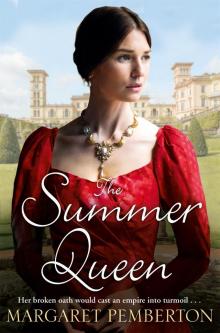 The Summer Queen
The Summer Queen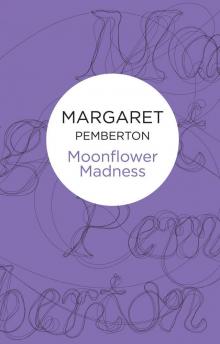 Moonflower Madness
Moonflower Madness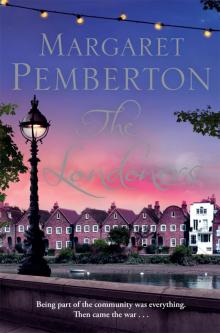 The Londoners
The Londoners The Flower Garden
The Flower Garden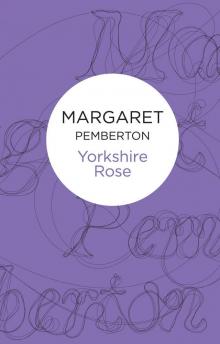 Yorkshire Rose
Yorkshire Rose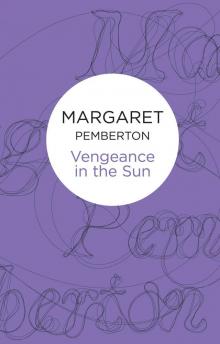 Vengeance in the Sun
Vengeance in the Sun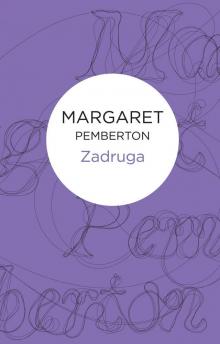 Zadruga
Zadruga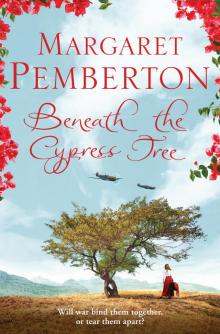 Beneath the Cypress Tree
Beneath the Cypress Tree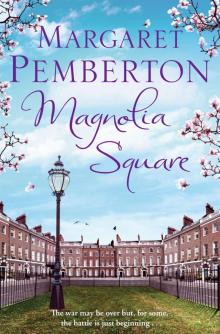 Magnolia Square
Magnolia Square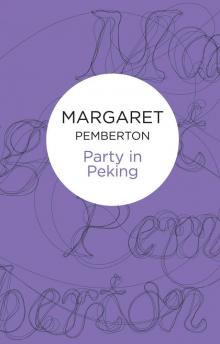 Party in Peking
Party in Peking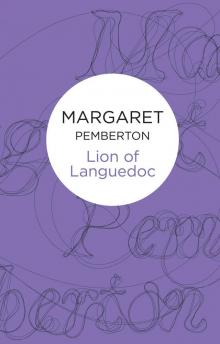 Lion of Languedoc
Lion of Languedoc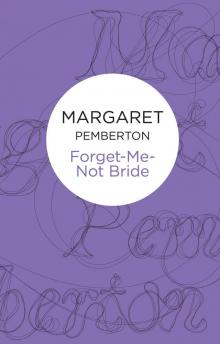 Forget-Me-Not Bride
Forget-Me-Not Bride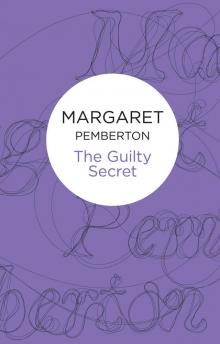 The Guilty Secret
The Guilty Secret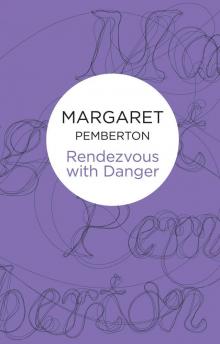 Rendezvous With Danger
Rendezvous With Danger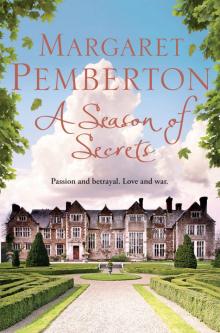 A Season of Secrets
A Season of Secrets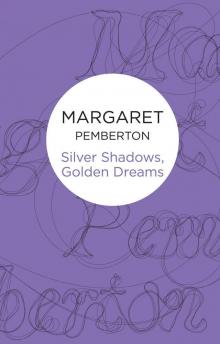 Silver Shadows, Golden Dreams
Silver Shadows, Golden Dreams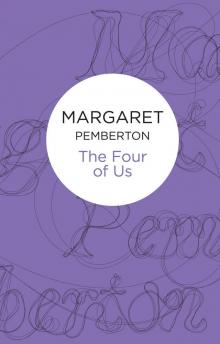 The Four of Us
The Four of Us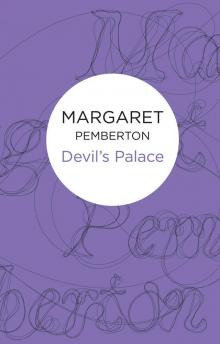 Devil's Palace
Devil's Palace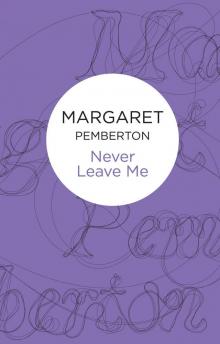 Never Leave Me
Never Leave Me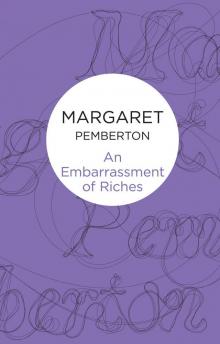 An Embarrassment of Riches
An Embarrassment of Riches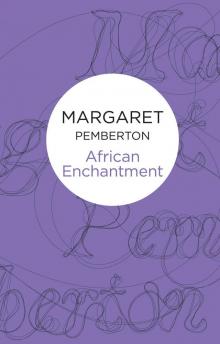 African Enchantment
African Enchantment White Christmas in Saigon
White Christmas in Saigon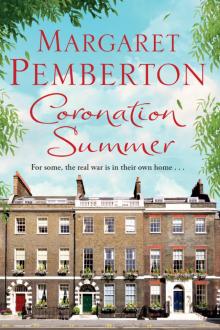 Coronation Summer
Coronation Summer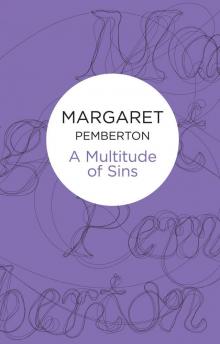 A Multitude of Sins
A Multitude of Sins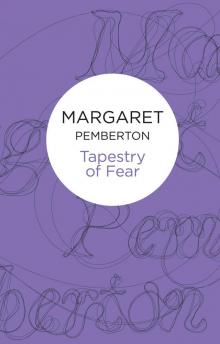 Tapestry of Fear
Tapestry of Fear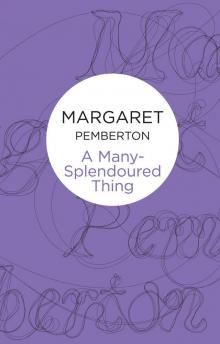 A Many-Splendoured Thing
A Many-Splendoured Thing